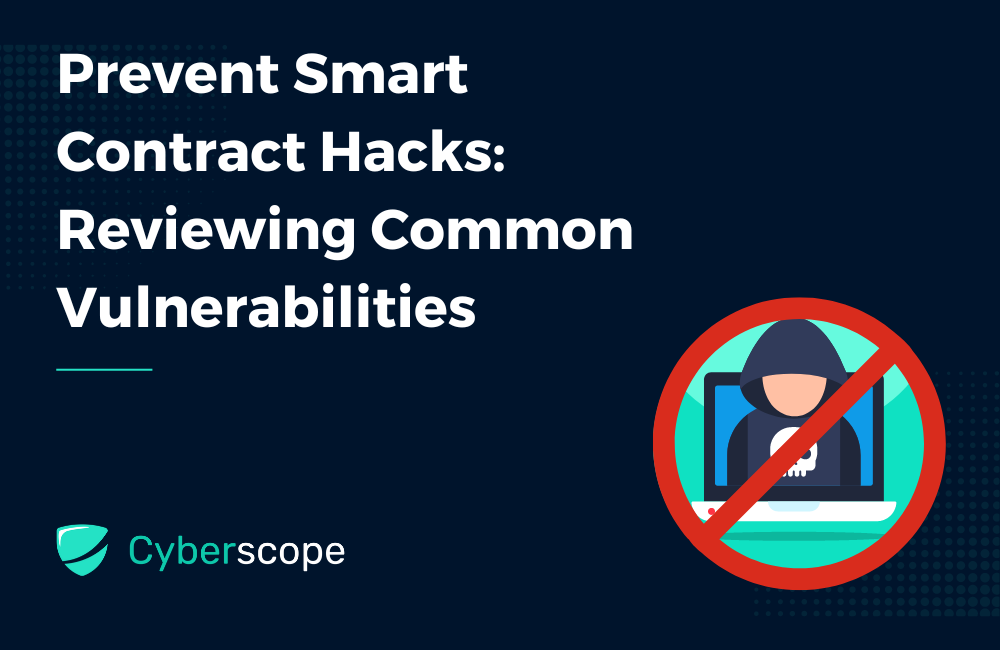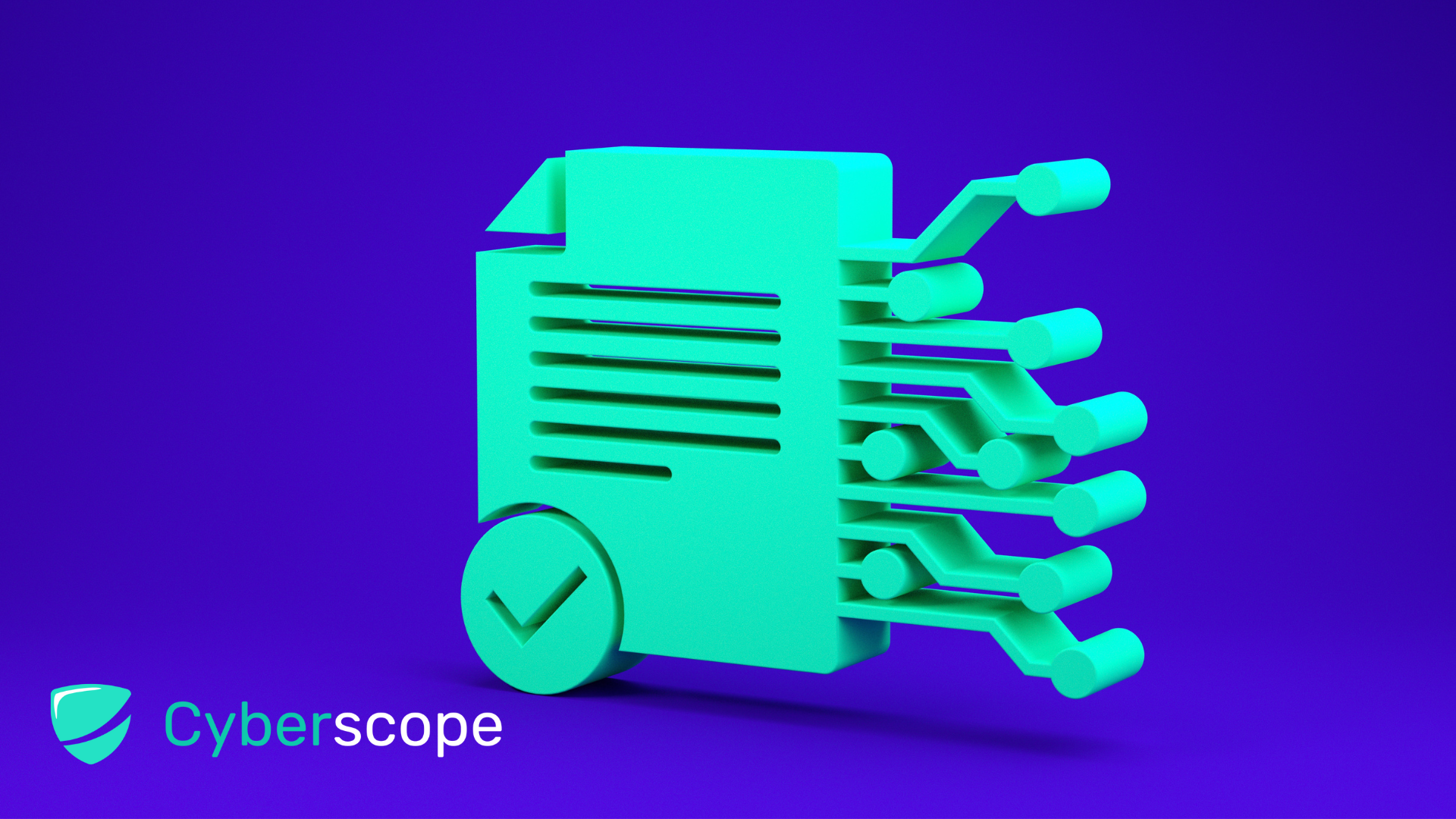

Prevent Smart Contract Hacks: Reviewing Common Vulnerabilities

Introduction
By facilitating the development of decentralized apps and powering the cryptocurrencies we are familiar with today, smart contracts have emerged as a crucial component of blockchain technology. These contracts are ideal for carrying out transactions because they are self-executing, which means that their terms and conditions are encoded in code and become immutable once they are implemented on the blockchain. Smart contracts' distinctive quality, however, also leaves them open to intrusion. Smart Contract Hacks can lead to substantial financial losses due to vulnerabilities in the decentralized nature of these contracts.
The absence of a central authority to oversee smart contracts is one of its major problems. Because they are decentralized, smart contracts are vulnerable to hacking attempts. One flaw in a smart contract can result in substantial losses. For example to the previews statement, in April 2023, Yearn Finance faced a severe security breach when an attacker exploited a vulnerability that had existed within the protocol's smart contracts for an extended period. The attacker managed to gain unauthorized access by exploiting a flaw in an old Yearn contract, allowing them to steal around $10 million from the protocol. This incident highlights the critical need for regular smart contract auditing to identify and fix vulnerabilities in smart contracts and prevent such attacks from occurring.
Therefore, safeguarding smart contract security is crucial for the success and widespread use of blockchain technology. We can strengthen the general security of blockchain networks by making sure that smart contracts can be used securely and efficiently by going over typical vulnerabilities discovered in smart contracts while talking about how to prevent them.
Common Smart Contract Vulnerabilities
To maintain the security of smart contracts, it is crucial to find and fix any possible weaknesses. This section will go through some of the most prevalent smart contract flaws as well as solutions.
Re-Entrancy Attacks
One of the most pervasive and deadly weaknesses in smart contracts is re-entrancy attacks. Before the initial transaction is finished, a malicious contract continually calls the victim contract, enabling the attacker to carry out more transactions and potentially steal money from the victim's contract. Contracts can become subject to re-entrancy attacks if they employ external calls to other contracts without the required synchronization and locking measures. To avoid re-entrancy attacks, developers must put in place practical safeguards such as capping the amount of gas that may be used during a transaction, using mutex locks, and carefully controlling external calls. For contract owners and users, failing to adequately address this risk might result in large financial losses.
Developers can use checks and balances to make sure that contracts are only called once and that money is only sent when the contract is in a secure condition to prevent re-entrancy attacks.
Integer Overflow and Underflow
Smart contracts frequently suffer from both integer overflow and underflow flaws. Integer overflow and underflow are typical smart contract vulnerabilities. These happen when an arithmetic operation yields a number that is either greater than or less than the smallest value that the data type being utilized can support. This can result in unanticipated actions like making a large number of tokens readily accessible for purchase at a very cheap price or causing a smart contract to pay out more money than it was planned to. It is essential to build efficient input validation and testing in order to stop smart contract hacks caused by integer overflow and underflow issues. Some computer languages additionally offer built-in defence against these weaknesses by immediately rolling back problematic transactions. As a result, making sure that Smart Contracts are well-tested and audited can greatly reduce the danger of Smart Contract Hacks.

DoS Attacks
A smart contract is subject to a denial-of-service (DoS) attack when a hacker uses a flaw in the contract's code to flood it with requests, causing it to malfunction or even crash. The attacker may achieve this by sending a lot of requests to the contract using a botnet, a network of machines that the hacker has taken control of without the owners' knowledge or permission. DoS attacks can be especially detrimental to smart contract-based financial or voting systems because they might cause substantial financial losses or delay crucial decisions. Smart contract developers must include techniques that restrict the number of requests that can be made to the contract in a specific time frame or that recognize and prevent suspicious traffic if they want to thwart DoS attacks.
Logic and Input Validation Errors
Significant smart contract vulnerabilities also exist in the areas of logic and input validation. These kinds of mistakes happen when the smart contract doesn't check the precision and thoroughness of the data provided or when it has logical faults that can be used by attackers.
Before smart contracts are implemented on the blockchain, they must undergo rigorous testing and auditing in order to avoid logic and input validation mistakes. Finding potential bugs and vulnerabilities involves running thorough integration tests, unit tests, and penetration tests. Additionally, it's critical to follow secure coding procedures and conduct code reviews to find problems before attackers can use them against you.
Inadequate Access Control
Adding to the previous ones, improper access control might leave smart contracts open to intrusion. When contracts fail to adequately limit access to sensitive functions, unauthorized users are able to carry out those tasks.
Access control mechanisms, such as demanding authorization for sensitive functions and making sure that only authorized parties may access the contract, can be implemented by developers.
Developers can ensure the security of smart contracts and help by increasing the general acceptance and success of blockchain technology by knowing these typical weaknesses and taking precautions against them.

Best Practices for Smart Contract Security
Security for smart contracts is vital for preventing flaws that might result in theft or money loss. The following recommendations will help you make sure that smart contracts are secure:
Use Trusted Libraries and Frameworks
Using trusted libraries and frameworks helps lessen the chance of introducing vulnerabilities while developing smart contracts. These libraries and frameworks are more dependable since professionals evaluated and reviewed them.
Smart Contract Auditing
Smart contract auditing is a vital component in guaranteeing the security of blockchain smart contracts. To reduce the danger of smart contract hacking, developers must do extensive testing before deployment to detect and remedy any vulnerabilities. Furthermore, independent auditors can perform a thorough review of the smart contract's code and highlight any potential issues that developers may have missed.
In addition to the auditing process, those who want to advance their understanding of smart contract security can become smart contract auditors. Various organizations and schools provide courses that address the principles of smart contract security and auditing, equipping learners with the information and skills needed to conduct thorough audits and successfully identify any risks.
By adhering to best practices for smart contract security, including rigorous testing, independent auditing, and continuous learning, developers can help ensure the reliability and security of their smart contracts on the blockchain.
Correct Input Validation and Error Handling
In order to prevent unforeseen behaviour and attacks, smart contracts should contain correct input validation and error handling. For instance, input validation may guarantee that only authorized users can access specific contract features, and error handling can stop the contract from carrying out incorrectly.
Access Control and Permission Management
These are essential for ensuring the security of smart contracts. To prevent unauthorized access to the contract, developers should put in place access control measures. Only parties that have been given permission to perform a certain function may be ensured with the use of permission management.
Implementing Circuit Breakers and Emergency Stop Mechanisms
In the case of a vulnerability or attack, circuit breakers and emergency stop mechanisms can assist in preventing losses. When certain criteria are satisfied, a circuit breaker can stop a smart contract's execution automatically, but an emergency stop mechanism enables the contract owner to manually stop the contract's execution in an emergency.

Smart Contract Security Tools and Services
There are many tools and services available to help developers and consumers secure the security of their smart contracts since the field of smart contract security is complicated and constantly changing. Some of the most popular tools and services are listed below:
Cyberscan
The Cyberscan contract address scan tool is one of the most valuable products offered by Cyberscope to assist investors in making informed decisions. Investors are often attracted to new ventures, and this tool is specifically designed to ensure the security of smart contracts.
Cyberscan provides all relevant metrics in a single source of truth, eliminating the need for multiple checks and searches across different sources. The tool is easy to use and all you need to do is paste the contract address into the relevant field, select your network from the dropdown menu, and click the search button.
The program provides a comprehensive report from the smart contract analysis, including important indicators such as contract ownership, contract proxies, audit, and code similarity to well-known forks.
It's crucial to remember that no single tool or service can ensure a smart contract's total security. To reduce the risk of vulnerabilities and attacks, developers and users should adopt a multi-layered approach to smart contract security, including best practices, tools, and services.
Similarityscan
Similarityscan is a tool designed to help investors check the uniqueness of a smart contract by comparing it with a database of popular contracts. By analyzing the code and identifying common tokens, Similarityscan can determine the degree of similarity between two contracts. While this tool is useful, it's important to note that a thorough inspection of the smart contract is still necessary to ensure its security, even if it closely resembles a reliable implementation. Nevertheless, the Similarityscan tool can provide a valuable side-by-side comparison of source codes, contributing to the overall security and reliability of a smart contract.
Mythril
Mythril is essential for every developer working on smart contracts on the Ethereum network. This free and open-source tool uses symbolic execution to discover potential smart contract vulnerabilities like reentrancy attacks, integer overflows, and other popular attack vectors. Symbolic execution enables developers to explore all possible paths through a smart contract and detect any vulnerabilities that standard testing approaches might overlook. Mythril provides developers with an easy-to-use interface for auditing contracts, including a web-based interface and a command-line tool.
Truffle
Truffle is another popular Ethereum development tool. Truffle is a development framework with a set of tools for creating, testing, and deploying smart contracts. Its smart contract testing platform enables developers to write tests for their contracts, such as unit and integration tests, to check that their code is working properly. Truffle also includes scripts for automated contract deployment, making it simple to deploy contracts to the Ethereum network. It also has a built-in debugging tool for testing and identifying faults in smart contracts, making it an essential tool for any developer working with smart contracts.
ConsenSys Diligence
ConsenSys Diligence is another choice. This professional smart contract auditing service performs comprehensive security audits on smart contracts, identifying vulnerabilities through a combination of manual and automated methodologies. Their security team checks every line of code in a smart contract for potential vulnerabilities such as code quality, security, and performance. They provide a comprehensive analysis of their findings, including remedial recommendations, and provide continuing support to assist developers in ensuring the security of their smart contracts.
Developers can ensure that their smart contracts are secure, reliable, and free from vulnerabilities that could result in smart contract hacks by utilizing the aforementioned security tools.
Conclusion
Finally, it should be noted that smart contracts are a crucial aspect of blockchain technology and that suitable security measures are needed to guard against hacking attempts. Security is a critical aspect of blockchain technology, and it is essential to safeguard against hacking attempts when using smart contracts. Re-entrancy attacks, integer overflow and underflow, denial-of-service attacks, mistakes in logic, and improper access control are examples of common smart contract vulnerabilities that can result in severe losses. To reduce risks in smart contract security, follow best practices like using reputable libraries, proper testing and auditing, input validation, managing access rights, implementing circuit breakers, and emergency stop mechanisms.

.png%3Falt%3Dmedia&w=640&q=75)

